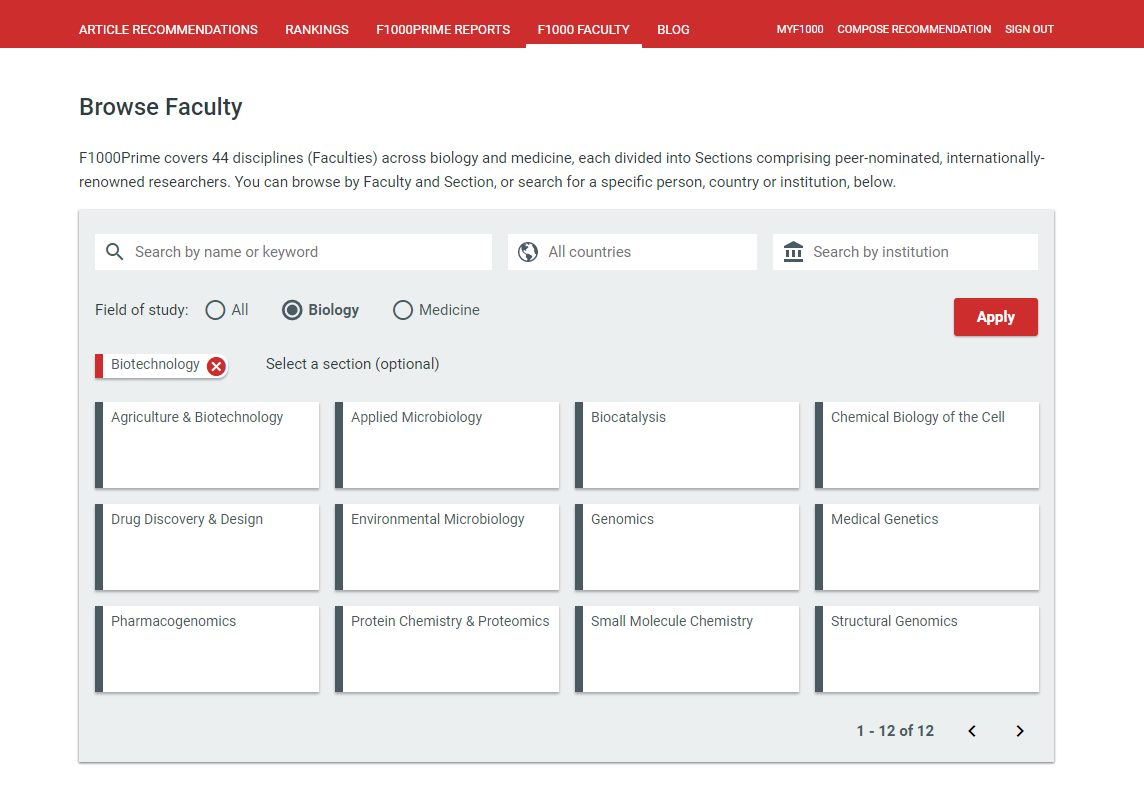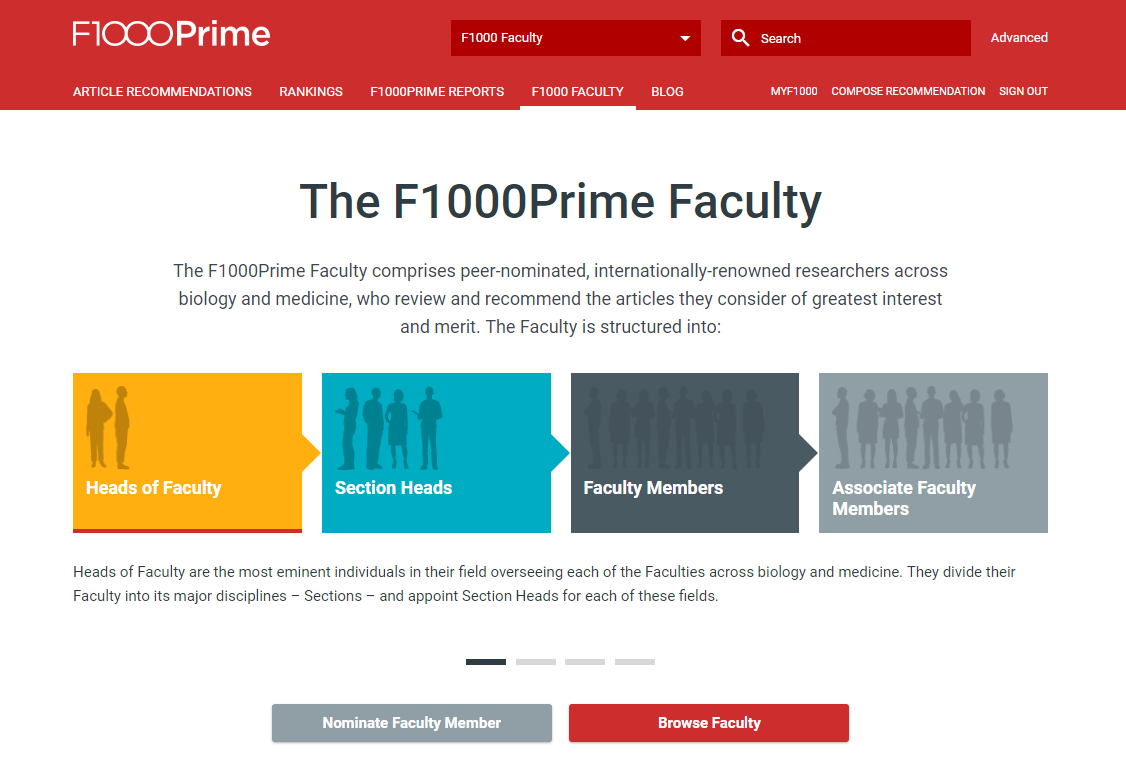Needles in a (growing) haystack: building a better magnet
| 7 March, 2018 | Daniel Shanahan |
|

|
Daniel Shanahan talks us through the changes that we will see on F1000Prime in the coming year

The next few months will bring some exciting developments to F1000Prime. We are evolving and redesigning our website and service, to reflect the changing nature of science and to more fully support researchers in discovering the articles that really matter to their research.
Needles in a (growing) haystack
The foundation for all research is building on what is already known. But with over 3000 articles published every day in the life sciences alone, finding what is truly relevant – what really matters to you – can seem as much luck as skill.
But it shouldn’t be that way.
Filtering and selection of articles is generally done pre-publication by journals; however, this leads to a number of unintended consequences, including publication bias, selective outcome reporting and p-hacking among others. This is compounded by the fact that the value of a piece of research is not always immediately obvious, with some articles gaining significance decades after they were initially published.
Instead, discovery and evaluation need to be journal agnostic, and performed post-publication.
Finding the research that matters to you
Even sophisticated searches lack nuance and can only find keywords in limited sections of published manuscripts, such as titles and abstracts, and are blind to complex concepts or transferable knowledge. Researchers are increasingly recognising these limitations and there is an abundance of advice available for how to increase the visibility of your articles to search engine algorithms, generally by liberally peppering your title and abstract with popular search terms.
It is possible that artificial intelligence will be able to solve this, but we are still many years away from a workable solution. Instead, recommendation from a qualified expert remains the gold standard. Researchers are uniquely placed to identify what looks to be useful for their own research, for the broader scientific community, and for society as a whole.
This is the aim of F1000Prime.
Evolving F1000Prime
F1000Prime works with a faculty of leading researchers, who recommend those articles they consider of greatest interest and merit, providing a viewpoint to give the context around the recommendation, covering why they consider it of interest and what the potential implications are.
The service was first launched in 2002, but with so much changing in research communities, and in how science is communicated and accessed, we are evolving and redesigning the service to deliver an even better experience to researchers, to help them find the most relevant information to their work.
To kick start the process, we conducted a series of interviews with researchers at all levels – from PhD students to Nobel prize winners – to explore how they go about finding the information they need to support their research.
The people we interviewed commonly described three primary aims for their discovery:
- Searching for something very specific
- Keeping up-to-date with the literature
- Exploring a new field.
However, rather than looking for the headline finding from a piece of research, they were often searching for a specific nugget of information buried within the article. Our aim in redesigning F1000Prime is to support these processes and help researchers find the information that really matters to them.
How are we going to do this?
Technology and ways of working in science change rapidly. F1000Prime needs to continually adapt to these changes as they happen, merging seamlessly into discovery workflows. We believe that the way we’re redeveloping the service now will allow us to ensure that happens.
We are using a hybrid methodology – a combination of Agile and Lean Start-up. In practice this means combining a people-orientated approach with data-driven iterative product development – rebuilding the service piece-by-piece based on feedback, metrics and usage patterns, allowing the process to evolve.
 The first piece of our rebuild is now live and you can view the new Faculty pages online. We have restructured and redesigned the individual biography pages, but the most profound changes are in the way the Faculty can be searched and browsed. In addition to top-down, subject-level browsing, you can now search horizontally across the entire scope of Prime, to discover who the leading experts at a specific institution or country are, and what they consider to be the most interesting research, across the entire spectrum of the life sciences.
The first piece of our rebuild is now live and you can view the new Faculty pages online. We have restructured and redesigned the individual biography pages, but the most profound changes are in the way the Faculty can be searched and browsed. In addition to top-down, subject-level browsing, you can now search horizontally across the entire scope of Prime, to discover who the leading experts at a specific institution or country are, and what they consider to be the most interesting research, across the entire spectrum of the life sciences.
Get involved
These pages will continue to change and evolve based on your feedback. At the moment what you can do is fairly basic, because we’re focusing on performance and getting the individual pages right, but we’ll be adding more features and pages soon, building towards our overall vision for F1000Prime. So please get in touch at info@f1000.com and tell us what you like or would like to see or comment below. We will keep you updated throughout this process. Any small changes we will add as updates to this blog post, for more significant changes, we will blog about this separately.

|





User comments must be in English, comprehensible and relevant to the post under discussion. We reserve the right to remove any comments that we consider to be inappropriate, offensive or otherwise in breach of the User Comment Terms and Conditions. Commenters must not use a comment for personal attacks.
Click here to post comment and indicate that you accept the Commenting Terms and Conditions.